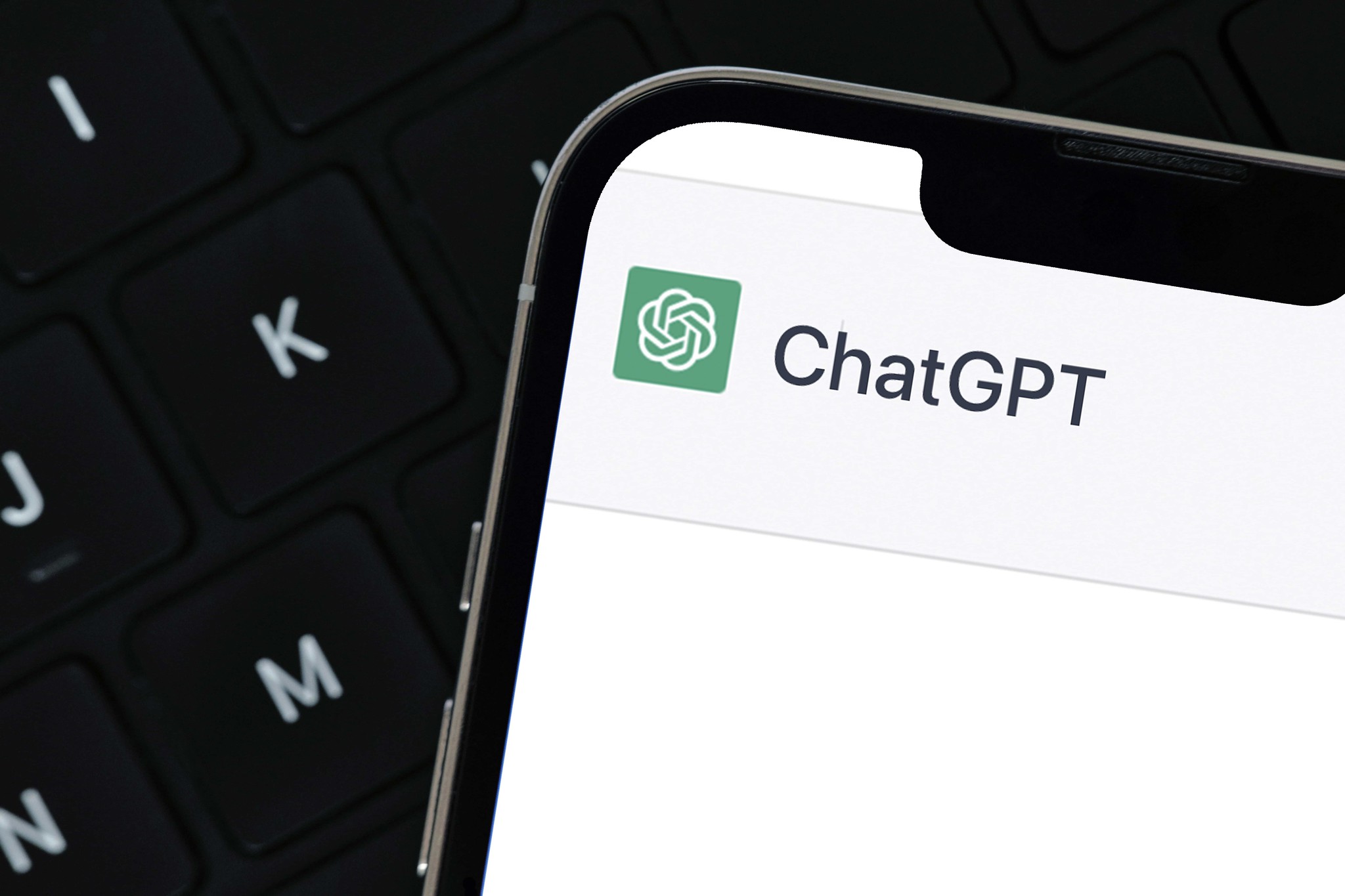By now, you’ve probably at least heard of ChatGPT, maybe from one of the headlines hailing it as the next big thing in technology.
But if you’re wondering why it’s such a big deal, you’re not alone. ChatGPT is a chatbot powered by artificial intelligence – a robot you can talk to with your computer. In that regard, it’s not the first of its kind. So why is it making such a splash?
Stephen Council, a tech reporter for SFGATE, talked with the Texas Standard about how ChatGPT works, and whether it’s worth the hype.
This transcript has been edited lightly for clarity:
Texas Standard: So briefly, can you boil down why some folks in the tech sector expect ChatGPT to be such a game changer?
Stephen Council: Absolutely. I think it really starts with the sort of instant popularity that ChatGPT got. Like you mentioned, it’s not the first of these AI chatbots to come out, but this thing grew like crazy, got 100 million users within just a few months of originally being released. You know, that’s a milestone in the tech industry that it took TikTok nine months to get to; Instagram, took them two years to get to that 100 million user mark.
So I think it’s really the popularity and then it’s just the companies behind it: We’ve got Microsoft and OpenAI sort of taking a run at Google’s search dominance. I mean, Google’s search dominance is a market that’s bringing them $100 billion to $150 billion every year. And you know, when you look at Microsoft trying to just take a run at that, it’s always going to be a disruptive attempt because Google has become synonymous with basically how we use the internet.
So how does it work for the user? I mean, compare it to Google: Google, you just type in a search term and abracadabra, you’ve got a bunch of options there.
What Microsoft is looking at is taking this chatbot and giving search a new experience where maybe instead of getting a whole list of links to click on, you’re going to get more of a conversational experience. So you type in something like, you know, “Can you help me plan a baby shower?” “Can you show me how to get from my house to downtown of the city that I’m living in?” – whatever it may be. And rather than giving you sort of a list of links or maybe some maps products, that’s going to give you a more step-by-step, conversational way of taking you through whatever instructions you ask it.
How sophisticated is it, and how close does it come to being a genuine chat? For instance, if I typed in ‘write me a sentimental poem for a special someone,’ could it do that?
Yeah, it’s kind of amazing. I mean, it’s funny you mentioned that example around Valentine’s Day, but it totally is true. I could see this really being something that people can use to sort of buff up their writing skills. The chatbot is not right all the time; it’s definitely had some well-documented errors with, you know, modern facts, logic, math problems. But it’s pretty remarkable. And I think that’s why it’s gained so much popularity. People ask it these questions and queries, and more often than not, it gets it exactly right. So like you said, giving it that sort of prompt where you’re suggesting a style of answer and then asking for a really good deliverable, that’s a good way to get ChatGPT to give you what you want.
But I would guess that like Google, you have to kind of know what you’re doing if you really are wanting to be advanced about your prompts. I mean, for instance, in Google, we all know that there’s a certain syntax one can use to narrow down your searches so that you’re not getting a lot of extraneous stuff. Can you do the same thing with ChatGPT?
Yeah, I think that’s right, though, a big part of its conversational nature is it’s going to appeal to sort of, you know, more generic questions. On Google, you might need to put in some keywords, but ChatGPT does a pretty good job understanding language and understanding the sort of normal human framing of the question. I sort of liken it to if you’re asking a very smart, very deferential, very untiring friend just for advice, you know, they’re going to give you the straight-up answer again and again, however many ways you ask.
Are they going to give you the same answer, though? For instance, if I had a certain query and someone else put in something rather similar, are they’re going to get the same thing?
That’s a good question. I think you get something similar, but I’d say a word off here or there between you and your friend putting in the same question, you might get a different answer. Really, the way that this technology works is it samples questions and answers from all through the internet, Wikipedia, just a lot of recorded human interaction. So it sort of tries to know what to say, how to say it and when. But that’s really all it is. It’s sort of this sampling from this huge swath of internet information. So that’s why it’s occasionally getting stuff wrong, but it’s also why it sounds so much like it talking to a regular person.
So if I try ‘write me a book report on Robinson Crusoe’ – I guess a lot of students have tried something along these lines; they get the same book report. Tell us a little bit about how this is shaking up the academy.
There’s definitely been a lot of talk about it from AI experts, and some of these folks who are making these chatbots are sort of testing out ways of showing that, you know, this batch of text was created by artificial intelligence, to keep things away from plagiarism. But I think it’s going to be a lot of stuff for the academy to deal with in the coming months and years as these things change. We’ll see how much sort of new original research and thought chatbots like this can do.
But for now, for basic writing tasks, it’s going to pretty much replicate what some at least lower-level classes are going to be asking for. So definitely something for teachers to keep an eye on. And I think that a good way of approaching it is bringing students in on it, saying, “what are ways that this can be helpful for my learning and for my writing and for reading? And what are some ways that it doesn’t get the job done in the same way that I can as a human?”
Not everyone is over the moon about the potential of ChatGPT. What are some of the red flags or pitfalls, other than errors, which you have pointed out?
There’s one struggle that’s really close to home for me. You know, as a reporter, I get paid by SFGATE to cover tech, which means I’m interviewing workers and experts, monitoring companies. My salary is pretty much paid by these ads that go up on the SFGATE site. And if chatbots scrape my writing and the stuff that I’ve put out off of our pages and show it to people, they’re sort of taking my information and my outlet’s information without paying us for our work. So that might seem like a small thing, but a lot of the internet runs on advertising, and if these chatbots scrape away content so that no one needs to go onto individual websites, these places will start to die out. They’ll be left without these revenue streams and then there won’t be this creation of new knowledge and recipes and ideas and content, just all the stuff that makes the internet useful in the first place. That’s a little scary.
You mentioned the creation of new ideas, and I’ve heard a similar complaint from artists who find that it seems as if ChatGPT is aggregating a lot of creative content, and that’s unpaid, obviously; it just gets scooped up and lifted. But I’m curious about a larger question that has come up. I’ve seen a kind of hype that’s built around ChatGPT – and on the other side of it, almost an effort to kind of rein in some of that hype. I was reading the other day, ‘Worried about ChatGPT? It’s as smart as a pigeon and pretty much operates the same way.‘ What’s your sense of whether this has been hyped up a bit much, as a lot of innovations, frankly, often are?
I think it’s hyped up correctly in that it’s an amazing technology, but incorrectly in the ways that I think this type of artificial intelligence and automation is really going to impact us. I think, you know, for the regular person, it’s sort of going to be OK, maybe your search is a little different. The way you use Google may change. And honestly, the way that you interact with customer service bots on websites might change. It might be a little better.
But I think that the larger ideas of artificial intelligence and automation coming down the line outside of the sort of user-friendly ChatGPT, those are going to be the things that, you know, automate factories and really change the face of work in America. So I think this is sort of a — it’s an iPhone moment. We’re all sort of paying attention to a new technology, but I don’t know that it’s really going to impact the everyday people as much as the hype seems to say.
Still, if it’s an iPhone moment, that’s rather historic unto itself.
Oh, definitely. Definitely. And I think that this platform that they’ve got and the fact that you can go on ChatGPT and get pretty much correct answers a lot of the time, it feels like something that these researchers have been trying to accomplish for a while. So it’s definitely meaningful that it’s out there in the public instead of just being, you know, in these big tech companies as sort of a pet project.
Google and Bing, most notably, have been investing in artificial intelligence. Are searches on those platforms going to change?
The platforms of Google and Bing, I think we’re going to have an option as users. I think that we’ll still have, you know, the way that we’ve gotten used to search and the way that we’ve gotten used to using Google and Bing. But I think that these companies are going to try to push on us a new conversational mode of search as well. It’s worth remembering that these companies already use artificial intelligence in their search results now. This would just be a new way of accepting and viewing the search results as people. So I think that it will be a new experience or we’ll have an option for a new experience at least. But I don’t think that the use of the Internet at large is going to change too much.













